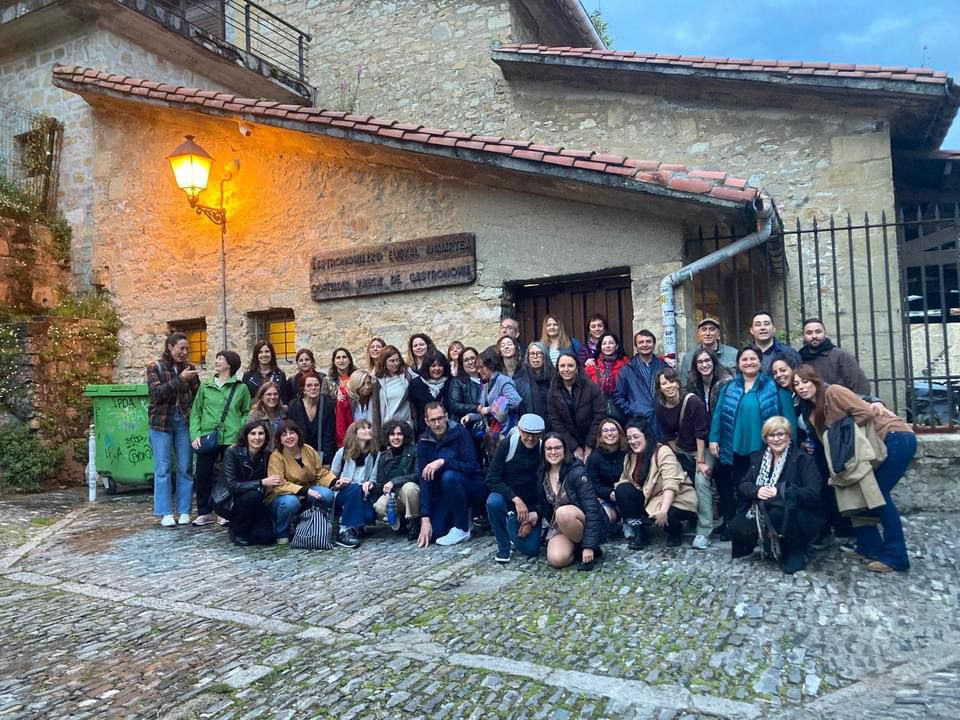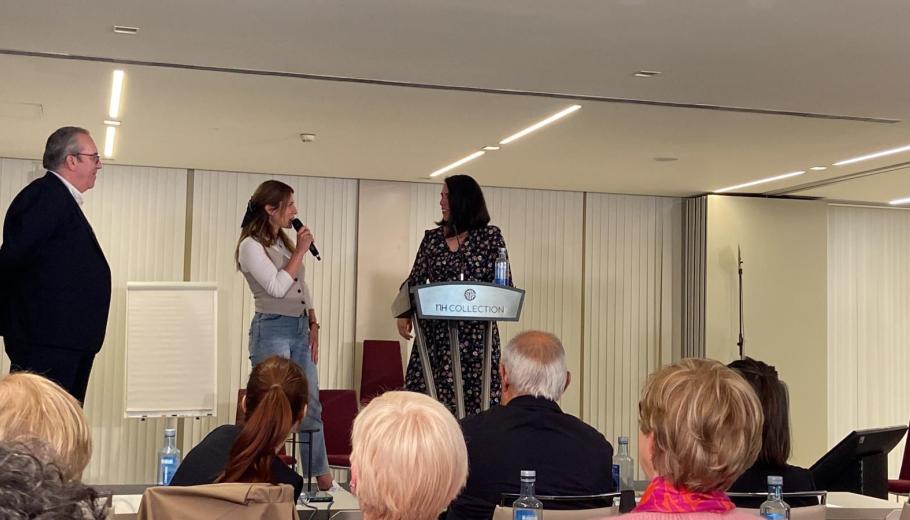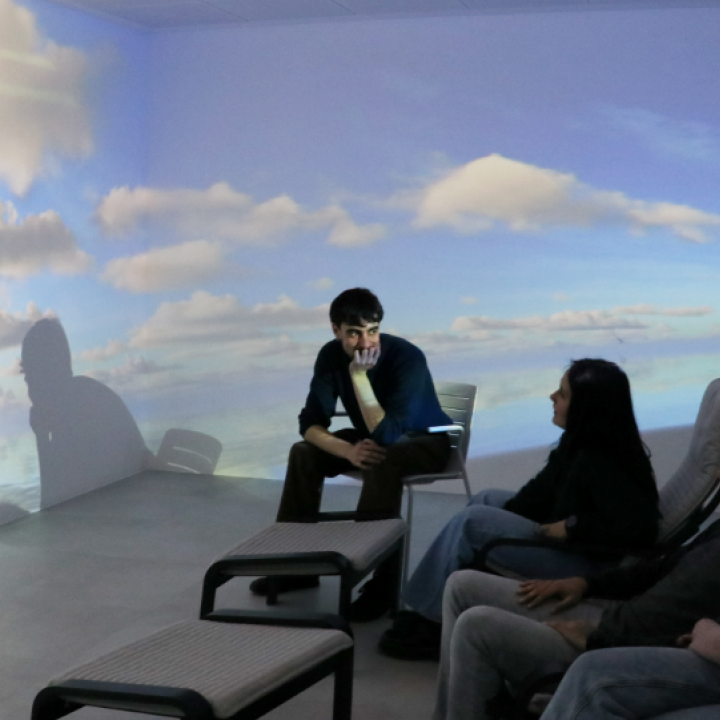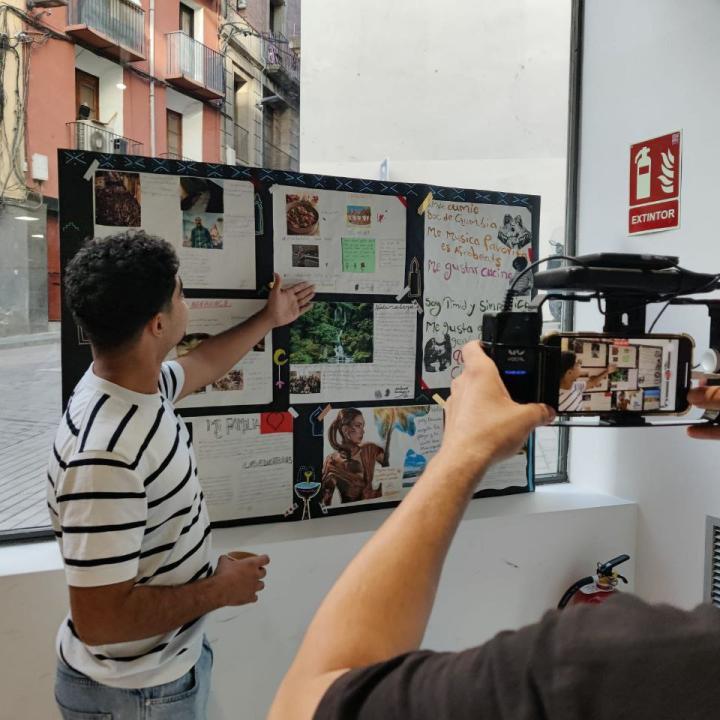A group of professionals from the Cooperative attended the "VI Conversations on attachment and resilience. The ecosystem view", which took place in Sant Sebastià on the 16th and 17th of May. The days were organized by a team led by psychiatrist José Luis Gonzalo Marrodán, revolving around attachment, resilience and the treatment of trauma.
As part of the talks "VI Conversations on attachment and resilience. The ecosystemic perspective", several papers were presented on ecosystemic interventions, an approach that not only takes into account the family context, but also addresses a comprehensive socio-educational intervention with the person's entire environment. To kick off the first day, psychotherapist Catherine Young presented her "multimodal attachment (M-MAT)" therapy model, which with a family-centered model, accompanies children to repair attachment and attachment wounds. In the second place, the intervention of the psychiatrist Jorge Barudy, dealt with the current social context, which through the market culture, configures a type of subtle violence and negligence, due to the fact that "from childhood we are shaped as consumers , self-centered behaviors are encouraged and our capacity for critical reflection diminishes.” Values that are opposed to those defended from the good treatment paradigm.
Next, the therapist Ana María Arón highlighted the need to care for professionals who work with victims of systemic violence.
"Attendance at these conferences always offers us to broaden the perspective of the intervention beyond our day-to-day life. In fact, many of the talks have such an important emotional charge that they have a very powerful impact on our professional practice.” Lydia Castillo, educator and coordinator of the l’Espai terapèutic -Benestarum.

An event on mental health care also featured a valuable intervention on pharmacological treatment in trauma contexts, by neuropsychiatrist Rafael Benito. At the same time he presented his new book "Cerebros moldeando otros cerebros", which is very useful for understanding the functioning and modulation of this organ, and its relationship with behavior and links throughout life. From his talk, we highlight the reflection "adolescence is a second chance", from the point of view of brain development and plasticity. This point of view made us feel hopeful, and they support the educational and therapeutic work we do in the cooperative with teenagers.
Also, the experience of Patricia Hermosilla, general health psychologist and systemic trauma therapist, who spoke to us about motherhood in contexts of sexual exploitation and the consequences for daughters and sons, was particularly striking. Explaining very carefully the current situation of the issue and made proposals to improve the public protection system. He was able to convey what they are living through real experiences in the first person, from the point of view of the exploited victim, as from the perspective of a daughter. The last professional to intervene was Ignacio Serván, clinical psychologist and psychotherapist, who presented his clinical work in cases of attachment disorganization, a vision that makes us rethink the concepts of attachment, as we understood them until now.
To close the event, as it could not be otherwise, the conference concluded with the vision of the protagonists; our brave ones, giving their testimony about the experience in the "sala de valients" and how their life has evolved after the therapeutic process to repair traumatic experiences during early childhood.
Reflection and impact
The "VI Conversations on attachment and resilience" were a space for reflection and learning for the professionals of the Cooperative who work with people who have suffered trauma. The conferences highlighted the importance of a comprehensive approach to dealing with trauma, taking into account the social and family context of the people affected.
In addition, the conference reaffirmed our view on the importance of bonding and resilience in the development of people. Reforce the idea that systemic trauma therapy and the paradigm of good treatment gives meaning to the work we do in child protection services. We receive a boost of motivation to continue with our professional work, as vocational as social education is, building the close link with the mental health care of the people we intervene.





